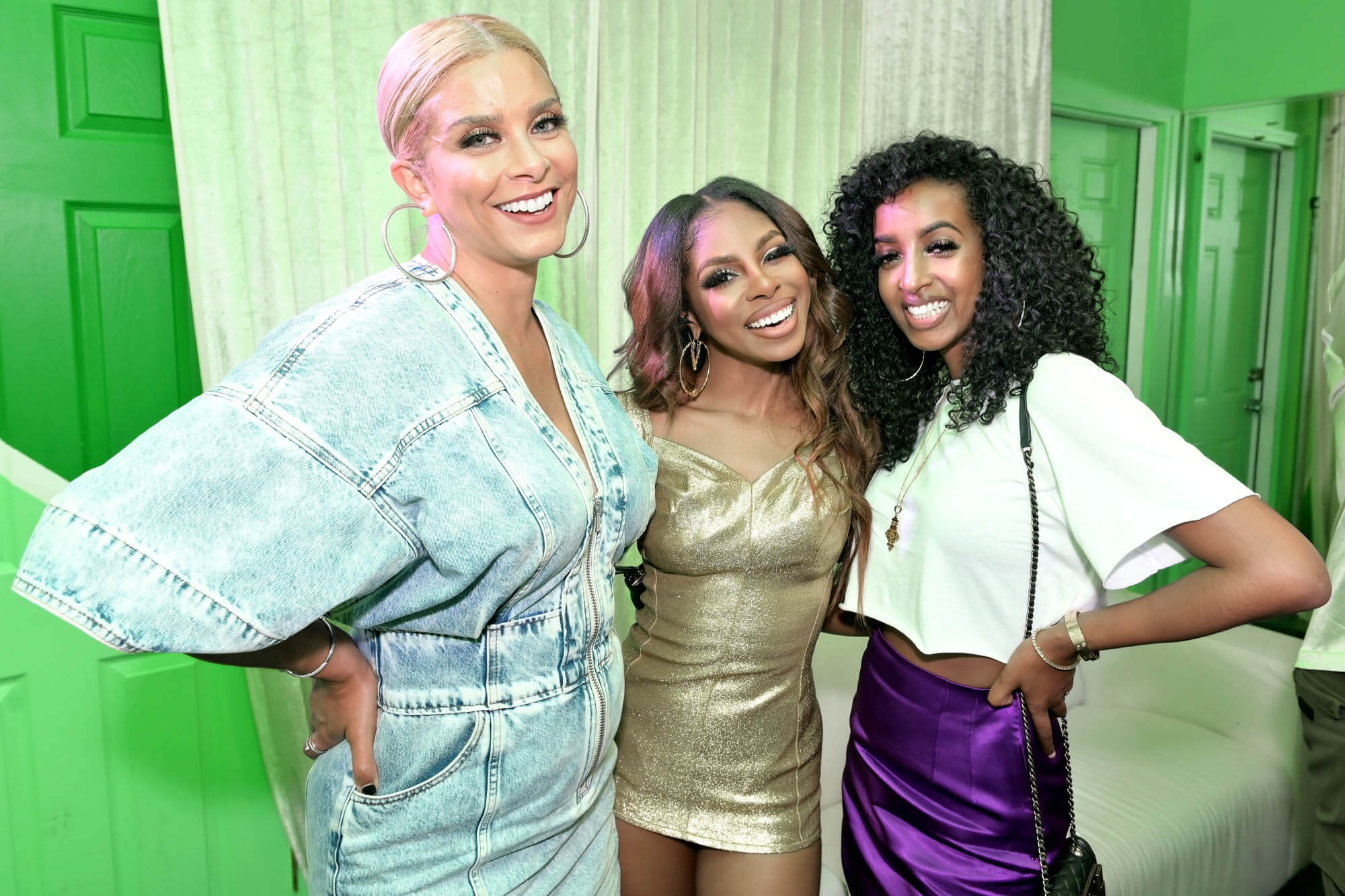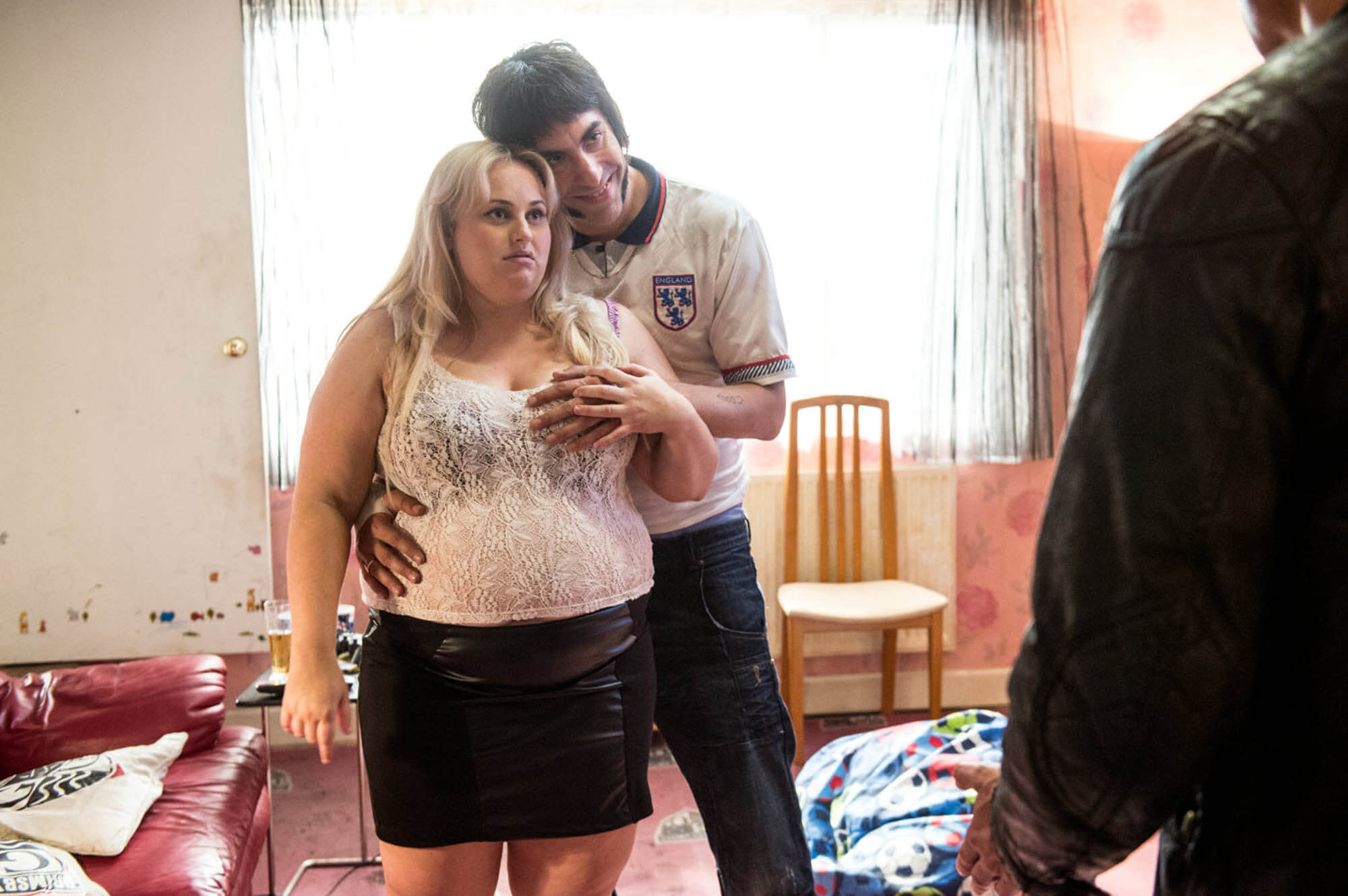The Real Housewives anthropology test



Last night’s Real Housewives of Potomac season finale featured more drama in a single episode than I think we saw this entire season. The hour started off with a bang when last week’s off-camera confrontation between Deborah and Candiace continued, but if you thought the episode was over when we started seeing signs of the traditional season signoff with 20 more minutes of airtime left, you were hardly prepared for what was coming next between Gordon and Mia.
The last scene featured a heartbreaking conversation that lifted the veil about the current state of the pair’s relationship – and more importantly, all the crap that landed them there.
Mia & Gordon lay everything out on the table! 👀🌸 #RHOP
— jay (@JaysRealityBlog) March 25, 2024
Source: @BravoTV pic.twitter.com/nS3gdZpva6
Throughout the season, it was clear they weren’t in the best place, with Gordon losing his role in his family business, subsequently falling into a six-month depression and the family being forced out of their massive home and into a cramped condo.
But through their conversation, it was revealed that Mia had been having a decade-long affair with her high school sweetheart, a radio personality named Inc, who she is now in a very public relationship with.
It also came out that she, Gordon and Inc were all questioning the paternity of Mia’s son, Jeremiah.
What is it about watching the devastation of an affair like Scandoval, or like Mia’s affair with Inc, which could literally tear her family and the lives of her children apart, unfold in front of us that makes us keep on watching? Why is it that the sense of voyeurism surrounding some of the most intimate, desperate or devastating moments in a person’s life makes for such good TV?
The other day I saw a TikTok that answered that question very well. In it, a content creator suggested that people who watch reality TV are some of the smartest out there, because they’re constantly watching anthropological and sociological studies unfold in front of them. There was another thing the content creator said though, and after watching this most recent episode, I find myself exploring my relationship with these shows and my consumption of reality TV even more critically. She said that reality TV acts as a “a window into the human condition.” If that’s the case, what does this latest episode prove?
It’s not uncommon for me to side with women when it comes to splits, separations and divorces. My typical stance is that women are overworked, under-acknowledged and playing a mother role to grown men who are emotionally stunted. But in this case, I can confidently assert that Mia is dead wrong, and after Carl Radke from Summer House, whose decision to call off his engagement to Lindsay Hubbard I wrote about here, Gordon has become only the second man in the reality TV space that I side with when it comes to their separations, though in Gordon’s case it wasn’t his choice to end his marriage.
To be clear, Gordon admits that after a bout with prostate cancer, he was unable to please Mia sexually and granted her the option of having a sidepiece. But he did have two very clear rules, neither of which she followed: his first request was that she be discreet about it and his second ask was that she keep the children out of it. Not only have rumours been swirling for a while about her affair (on national TV), but Gordon says Mia brought their kids to Inc’s home.
For context, Mia and Gordon have a 32-year age gap between them. Mia, an ex-exotic dancer, met Gordon at the nightclub she worked at. He used to spend a lot of money on her, and finally whisked her out of there, wifed her up, and they went on to marry and have two kids, perhaps one, we’re not sure yet.
Last season, Mia admitted on camera during a conversation with the rest of the cast that there was a strong possibility that she only married him for his money. So seeing the impact his removal from the business and the stopping of the gravy train has had on her has been interesting, to say the least, because it’s showing us how any given person might operate when the financial rug is pulled from beneath them, especially when it’s the primary reason they entered into the relationship in the first place.
When things were good and money was flowing, Mia kept her affair discreet, as he requested. But when the couple took a hit financially, she began distancing herself from Gordon and from their marriage, and she started soft launching Inc to us and to the rest of her castmates, as if she were planting the seed to help normalize their relationship and the very strange way it came about.
I think the knee jerk response to hearing about a couple with that wide of an age gap and particularly with their history might say that Gordon knew what he was getting himself into. But by that same token, so did Mia. She had to have known there may be health issues down the road. She had to know sexual impotency would likely be something they encountered at some point. And my thought is, if she was just looking for a sugar daddy, she shouldn’t have married him. I wouldn’t have judged her if the pair had maintained the dynamic they shared while she was working at the strip club. He takes her out, buys her nice things, there are millions of men and women sharing this dynamic and clearly, they’re each getting something out of it. But by marrying him, she took a vow that she was not ready to honour – at any point in time throughout their relationship. Through sickness and in health, for better or for worse.
Despite my criticism of her, though, I still understand why she is operating in the manner that she has been. And personally, I think it goes back to her childhood. She has a very fraught relationship with her mother and lacked safety, security, and abundance. So with Gordon becoming increasingly unable to provide her all of the things she so desperately sought after as a child, and as a grown woman, she’s going to cling to whatever feels safe, whatever feels secure – and right now, that happens to be Inc.
This kind of thorough assessment is the “window into the human condition” that that content creator was talking about. A viewer’s ability to examine this situation so thoroughly, put things into context, and most importantly, to cast a judgement. Humans love casting judgement. We love deciding which side of the fence we’re on. The judgement you make is what determines which camp you’re in. And that becomes the thing that can either unify you with strangers or grant you an instant enemy if it’s revealed you don’t align on your principles, or in the case of reality TV, your heroes and villains.
Think about it, with Scandoval, the first narrative to emerge was whether you were #TeamAriana or #TeamSandoval. With Jen Shah’s arrest, which I discussed here, it immediately became a question of whether you believed she was guilty or innocent. In every major reality TV scandal, it comes down to which side you’re on.
In the same way people find unity in sports when they root for the same team. In the same way people enjoy watching fictional character development in scripted sitcoms or dramas. In the same way we turn our noses up at our neighbours when they put up lawn signs broadcasting who they’re voting for in the next political election, we find all of these things in reality TV. The audience is a microcosm of so many other communities and groups in the world. And while it may be masked as an obsession over fights, drama and scandals, deep down, at its core, it, like so many other things, is having a vested interest in seeing how people navigate some of life’s most trying moments, how we all do life.
